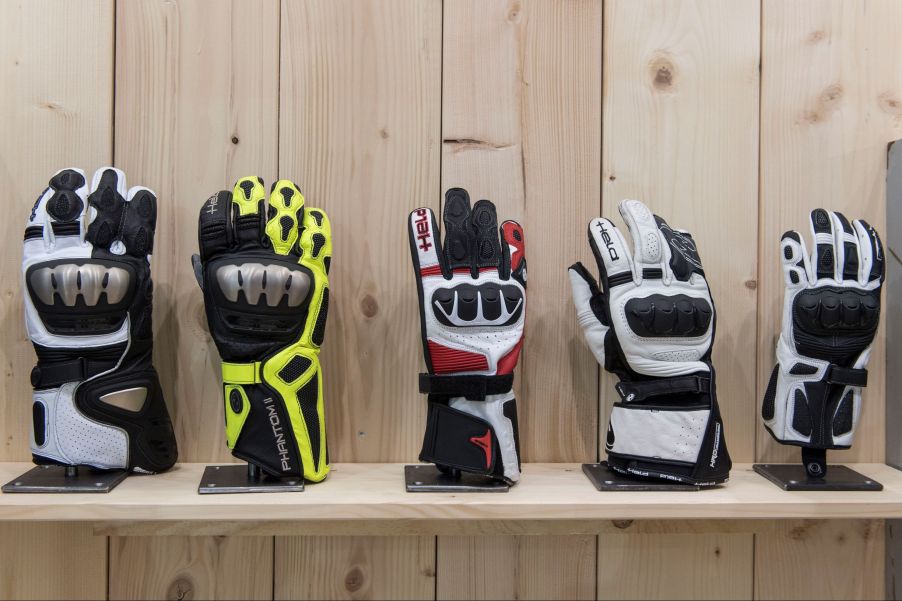
Is it Time to Replace Your Motorcycle Gloves?
Unless you’ve been riding through the snow, winter’s end means it’s time to bring your motorcycle out of storage. And not just your bike, but all of your riding safety gear, too. That means your motorcycle jacket, your helmet, and also your gloves. But if your riding gloves have seen their fair share of seasons, it might be time to swap them out.
How often should you replace them?
Every piece of motorcycle safety gear, from the armor in your jacket to your boots, has a limited life span, RideApart reports. Even if you never get into an accident, age, the elements, road debris, and UV light eventually break your gear down. And that includes your riding gloves.
Luckily, you won’t have to replace your motorcycle gloves every year. FortNine estimates that the average pair of gloves, with the proper care, should last around 12,000 miles. Based on my own mileage last year, my gloves could theoretically withstand a decade of riding. So, unless you got into an accident, if you purchased your own pair of riding gloves in the past year, they should still be good.

That being said, there are some situations where you might need to replace your motorcycle gloves early. Or, at least get an additional pair. The first is, obviously, if you get into an accident and the gloves get damaged. Another is if they suffer wear damage, such as failed stitches, split cuffs, and so on, MotorBike Writer reports.
Finally, there’s also the possibility that you’ve changed your riding style. For example, you may have ridden cruisers, but now you’ve started going off-roading. Or maybe you’ve decided to take track-riding lessons. If that’s the case, your current pair of motorcycle gloves may not be properly designed for the kind of riding you’re doing, The Drive reports.
What kind of motorcycle gloves are best for you?
Motorcycle gloves fall into several different categories based on where and when you’ll be riding, RevZilla explains. There are dirt and dual-sport gloves for off-roading, race gloves for, well, racing, as well as touring and general-purpose gloves.
If you’re riding in the summer or anywhere humid and hot, you’ll want a pair of well-ventilated summer gloves. And if it’s chilly, there are thicker, waterproof, and insulated winter gloves. Some winter riding gloves even have battery-operated heating elements, The Drive reports.

Furthermore, many of these riding gloves can be further split into either the ‘short-cuff’ or ‘gauntlet’ categories. Short-cuff gloves, as their name implies, end right around the wrist. In contrast, gauntlet gloves extend further up the arm. Gauntlet gloves are more expensive and harder to remove, but they provide more protection, Motorcycle.com reports. Plus, they provide more insulation, which is why many winter gloves are gauntlet-style.
So, how do you pick out a pair of motorcycle gloves? First, start by figuring out what kind of riding you’ll be doing. If you’re going racing on a track, you’ll need track-specific gloves, Cycle World explains. And ditto for anything involving off-roading or overlanding.
Regardless of what kind of glove you’re looking for, though, there are a few things to watch out for. Firstly, the material. Leather is a common go-to because of its excellent abrasion resistance, comfort, and overall versatility, Cycle World reports. But some gloves are made of abrasion-resistance textiles for improved breathability and/or weather resistance, RevZilla and The Drive report.
Next, look at the level of protection the riding gloves offer. Even if you’re not racing or overlanding, your gloves should at least have knuckle and finger protection, RideApart reports. And the best ones, such as those Australia’s MotoCAP rated at three or more stars, also come with palm and wrist protection, RideApart reports.
How do you figure out what size of motorcycle gloves to buy?
The last part of picking out your motorcycle gloves is making sure they fit properly. But it’s not just a matter of personal comfort, though that is important. You need to be able to safely and easily operate your bike’s controls, and you can’t do that with ill-fitting gloves, The Drive explains. And that means measuring your hands and trying on a few pairs yourself.
The first thing to do when trying on a pair of riding gloves is to make a fist. If that’s hard to do, or if doing so puts tightness across the tops of your fingers, you have the wrong size, RideApart reports. Next, make a ‘C’ shape with your gloved hands. If that’s difficult, or if the glove’s palm separates significantly from your own, get a different pair. Your motorcycle gloves should be snug so they don’t fly off your hands, but not so snug that they threaten to cut off circulation.
And once you’ve found the right pair, make sure you schedule in some time to break them in with a good ride.
Follow more updates from MotorBiscuit on our Facebook page.


